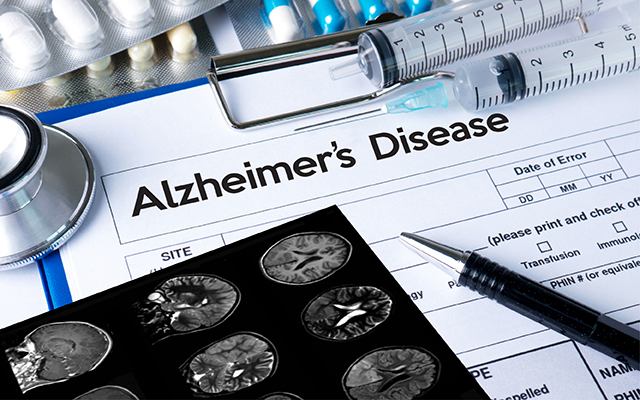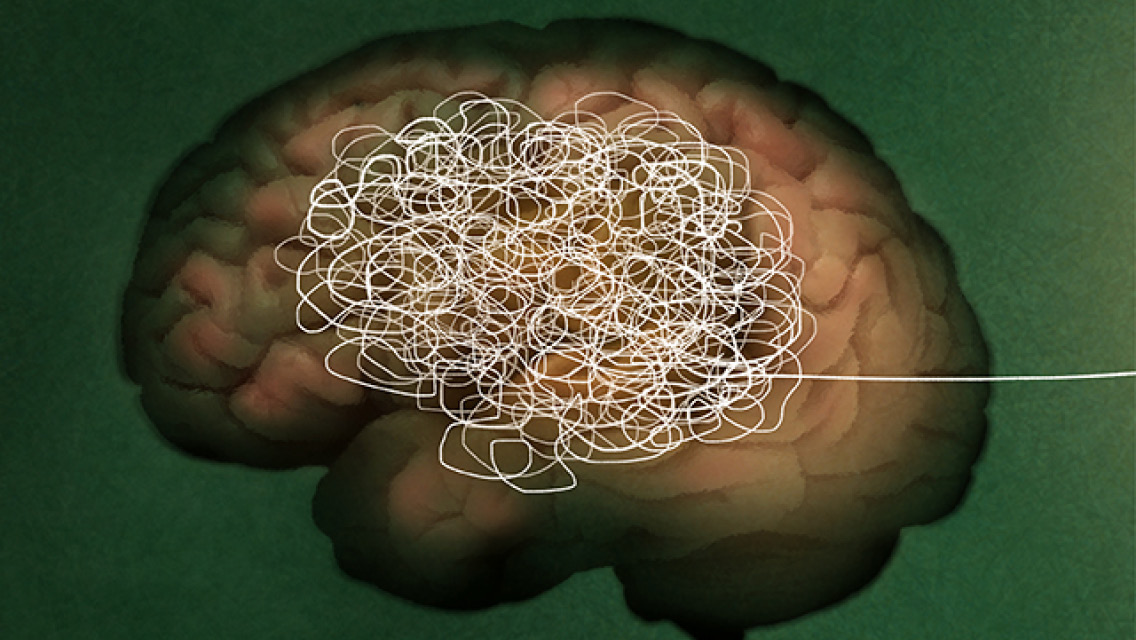Big Pharma and its acolytes converged on Chicago last week and produced what can only be called a mixed message on the future of Alzheimer’s research. The upshot: Researchers may have found a way to slow the disease’s progression, but they’re not at all sure they’ll ever be able to corroborate their findings.
Representatives from a Japanese company, Eisai, and the Cambridge, Mass.–based Biogen created a stir at the Alzheimer’s Association International Conference, suggesting that, for the first time in a large clinical trial, a drug didn’t just reduce brain plaque but also delayed the onset of dementia.
The response from the research community was swift and guardedly optimistic. “I don’t know that we’ve hit a home run yet,” Reisa Sperling, MD, director of the Center for Alzheimer Research and Treatment at Brigham and Women’s Hospital, told the New York Times. “But as a proof of concept, I feel like this is very encouraging.”
Eisai and Biogen researchers gathered a pool of 856 people displaying early symptoms of Alzheimer’s and significant deposits of amyloid plaque in their brains. Those who received the highest doses of the drug BAN2401 over an 18-month period saw their plaque diminish while their cognitive performance declined 30 percent more slowly than a placebo group.
The amyloid reductions were “dramatic,” Sperling said, and though the cognitive results were less than overwhelming, she argued that they were still significant. “If you could really slow decline by 30 percent for people who are still normal or very mildly impaired, that would be clinically important.”
Samuel Gandy, MD, associate director of the Mount Sinai Alzheimer’s Disease Research Center, was less impressed. “I wouldn’t say this is a quantum leap,” he told the Times. “It is a convincing moving of the needle. But it’s not clear that the needle has moved far enough to make a difference in people’s lives.”
There’s a reason why any little quiver of that needle gets such attention these days. Alzheimer’s research is pretty much stuck. As University of Exeter scientists reported at the conference, there have been no new licensed therapies in the last 20 years. Meanwhile, there are only 142 clinical trials currently underway worldwide. And, of these, only 29 have any chance of producing a viable treatment protocol. At a similar point in the history of cancer research, they note, there were 40 times more trials in process.
Finding folks for a cancer study, it turns out, is a lot easier than finding enough qualified participants for an Alzheimer’s trial. And the more studies launched, the harder it is to find subjects.
Describing an effort by Pharma giant Eli Lilly to recruit 375 people with early Alzheimer’s symptoms, Gina Kolata lays out the daunting numbers game in another Times piece: “There are 5.4 million Alzheimer’s patients in the United States. You’d think it would be easy to find that many participants for a trial like this,” she writes. “But it’s not.”
First, the company must inform 15,000 to 18,000 people about the study, then about 2,000 have to make it through the initial screening. To meet the trial’s criteria, participants have to be 60 to 89 years old, suffer from “mild but progressive memory loss for at least six months,” and have undergone at least two types of brain scans indicating an Alzheimer’s diagnosis.
But doctors have yet to come up with a reliable way to diagnose the disease, which explains why 80 percent of trial subjects don’t make it through the screening process.
“It can take a long time to get a diagnosis, Ira Goodman, MD, neuroscience medical director of Bioclinica Research in Orlando, Fla., tells Kolata. “Even the primary-care doctors say, ‘Oh, don’t worry about it, you’re just getting older.’”
And even if they have an accurate diagnosis, elderly Alzheimer’s sufferers generally aren’t keen on confronting the numerous practical obstacles — or the social stigma — involved in participating in a clinical trial. Just getting through the day is enough of a trial.
Lilly is not facing this issue alone — and that’s a big part of the problem. Exeter University researchers may bemoan the lack of activity on the Alzheimer’s front, but those 142 trials they point to will require, according to John Dwyer at the Global Alzheimer’s Platform Foundation, some 25,000 participants. That means reaching out to 37.5 million qualified patients.
“The numbers make it clear,” Kolata argues. “There’s no way scientists are going to find 25,000 participants for all the Alzheimer’s trials that have been approved.”
And that’s a hard pill for Alzheimer’s sufferers to swallow, Dwyer says. “The irony is that the science has never been more promising,” he notes. “How many promising drugs will be abandoned or their evaluation seriously delayed? Some good science is going to be left on the cutting-room floor.”




This Post Has 0 Comments